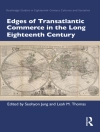This book examines how the experiences of hearing voices and seeing visions were understood within the cultural, literary, and intellectual contexts of the medieval and early modern periods. In the Middle Ages, these experiences were interpreted according to frameworks that could credit visionaries or voice-hearers with spiritual knowledge, and allow them to inhabit social roles that were as much desired as feared. Voice-hearing and visionary experience offered powerful creative possibilities in imaginative literature and were often central to the writing of inner, spiritual lives. Ideas about such experience were taken up and reshaped in response to the cultural shifts of the early modern period. These essays, which consider the period 1100 to 1700, offer diverse new insights into a complex, controversial, and contested category of human experience, exploring literary and spiritual works as illuminated by scientific and medical writings, natural philosophy and theology, and the visual arts. In extending and challenging contemporary bio-medical perspectives through the insights and methodologies of the arts and humanities, the volume offers a timely intervention within the wider project of the medical humanities.
Chapters 2 and 5 are available open access under a Creative Commons Attribution 4.0 International License via link.springer.com.
Jadual kandungan
1. Medieval and Early Modern Visions and Voices: Contexts and Approaches,
Hilary Powell and Corinne Saunders.- 2. Behold! The voices of angels: narrative, audience, and affect in Eadmer of Canterbury’s
Breviloquium Vita Sancti Wilfridi,
Hilary Powell.- 3. Gabriel’s Annunciation and the Problems of Angelic Voice,
Jacqueline Tasioulas.- 4. Hearing, Seeing, Smelling, Tasting, and Touching the Voice: Gender and Multimodal Visions in the
Lives of Thomas of Cantimpré,
Christine Cooper-Rompato.- 5. Thinking Fantasies: Visions and Voices in Medieval English Secular Writing,
Corinne Saunders.- 6. Staging Conversion: Preternatural Voices and Visions in the Medieval Drama,
Mark Chambers.- 7. Julian of Norwich, the Carrow Psalter and Embodied Cinema, Sarah Salih.- 8. Writing and Reading the Word: Patterns of Divine Speech in Julian of Norwich’s
A Revelation of Love, Darragh Greene.- 9. Sounds Like God: The Elephant in
The Book of Margery Kempe, Barry Windeatt.- 10. Daggers of the Mind: Hallucinations, Mental Fixation and Trauma in Kyd’s
The Spanish Tragedy and Early Modern Psychology,
Lesel Dawson.- 11. ‘Fearful echoes thunder in mine ears’: Hearing Voices in Marlowe’s
Doctor Faustus,
Laurie Maguire and Aleksandra Thostrup.- 12. ‘Under the Operation of a Higher and Exalted Mind’: Medicine, Mysticism and Social Reform in Restoration England,
Peter Elmer.
Mengenai Pengarang
Hilary Powell is Honorary Research Fellow in the Department of English Studies at Durham University, UK, where she specialises in medieval monastic literary culture and the medical humanities. Her recent publications explore themes of voice-hearing, psychosis and mind-wandering from a medieval perspective.
Corinne Saunders is Professor in the Department of English Studies and Co-Director of the Institute for Medical Humanities at Durham University, UK, specialising in medieval literature and the history of ideas, in particular, the connections between mind, body and affect. Her books include Magic and the Supernatural in Medieval English Romance (2010).












